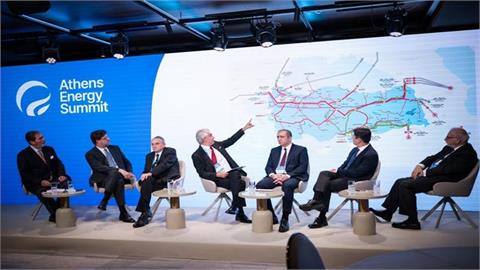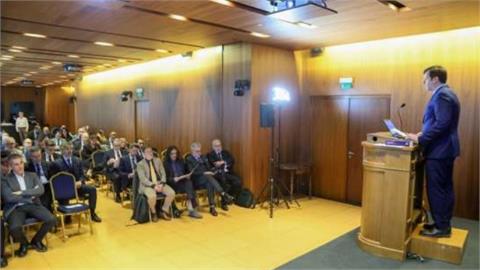IENE's forthcoming event, to be held on April 17, 2024 (09:00 – 18:00) at the OTE Academy, in Maroussi, Athens, will attempt to throw light on the crucial question of whether the EU energy policies on Renewables and Energy Efficiency, as currently pursued, actually promote or hinder progress towards energy transition. This one-day IENE conference, entitled "Energy Transition Goals: Opportunity or Obstacle for RES and Energy Efficiency?", will pose a series of crucial questions
connected to the emerging scenery brought about by the climate change policies on the economies and societies of Europe.
RES and Energy Efficiency are the two central pillars of the EU strategy against climate change. However, these strategies do not simply aim at changing the energy mix and the energy transition but point towards a completely different overall development plan for the economy. However, more and more often the priorities set by these strategies, in the short term, contradict the need of the member states for greater energy autonomy, while the almost abrupt change from the consumption of domestic fossil fuels to other imported energy sources causes great concern over energy security.
At the same time, there is an inverse relationship between the development of RES and the promotion of energy efficiency, a phenomenon that in the future will greatly concern the economies in the EU and their prospects of further development. The reason is that recessionary factors as well as the greater application of energy efficiency methods themselves entail a reduction in demand in the economy and, consequently, have a negative effect on the expansion of the RES market.
In addition, the increasingly ambitious targets for RES development have pushed the grid to its limits, while energy storage, although it will solve some problems in the medium term, however, in the long term, may create bigger problems, as it will allow the penetration of even more RES. After all, it is widely known that the increase in the penetration of RES should generally follow rather than precede storage.
Thus, it becomes increasingly clear that what is at stake is not just the implementation of the ever higher RES targets but their dissemination to the point where it benefits the economy and meets energy demand, in a rational way, while avoiding emissions and waste of financial resources, which, in the end, will burden consumers.
At this one-day IENE Colloquium, a series of key questions will be raised that aim to cover the entire spectrum of RES as well as energy efficiency. More than 25 senior executives and well-known experts in the field of RES and energy efficiency have already confirmed their participation in this major IENE event.
For full details on the programme as well as on registration, visit the event's microsite




